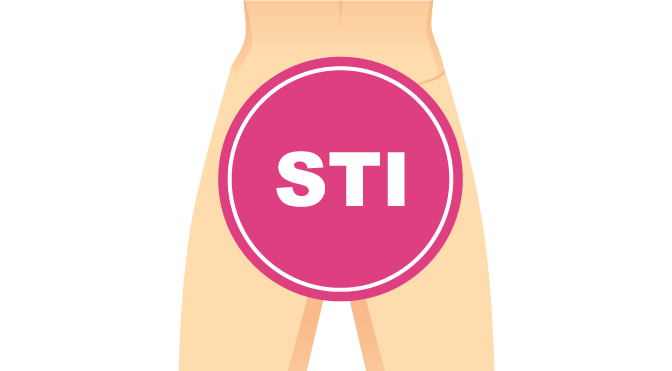STI

Sexually transmitted infections (STIs) are a range of infections which can be passed on through sexual activity with another person. STIs usually affect the genitals (private parts) but can affect the throat if you have performed oral sex.
Some examples of STIs are Chlamydia, Gonorrhoea, HIV and Syphilis.
You can get an STI through sexual contact with another person. This includes oral sex (using your mouth on somebody’s genitals), vaginal or anal sex.
Regular use of condoms (male or female condoms) is a really good way of reducing the risk of getting an STI.
Getting to know you partner and talking about previous relationships can also help reduce your risk. It might be a bit awkward for some, but it can help to keep you safe.
And remember, the more sexual partners you have and the more times you have unprotected sex, the greater your risk of getting an STI.
Sometimes STIs can cause symptoms (such as unusual discharge, pain when weeing, a rash or lumps around your genitals) and these can be an obvious sign of an infection.
However, most people don’t notice any obvious symptoms and can have an STI without knowing it. The best way to find out if you have an STI is to do a test – it’s easy and painless, and only takes a couple of minutes.
Chlamydia and Gonorrhoea:
For males (or anybody with a penis) you can just provide a urine (wee) sample and we can do the test from that.
For females (or anybody with a vagina) we recommend testing with a swab. Don’t panic – the swabs are designed for you to use yourself; we’ll talk you through what to do and give you a private space to do it.
HIV & Syphilis:
Both of these require a blood sample to test and can be done with a simple ‘finger prick’ test.
Your test results can take up to two weeks to come back (but they might be available sooner).
If your results are all clear, we’ll send you a text to let you know.
If you need treatment for an infection one of our nurses will give you a call to arrange getting your treatment. Don’t worry if you can’t answer straight away, they’ll try to call a few times.
Many of the most common STIs can be easily treated and with antibiotics. Some others might need different medication or treatment. If you test positive for one of the infections we test for, we will provide any treatment you require.
For more information about STIs visit the NHS website.